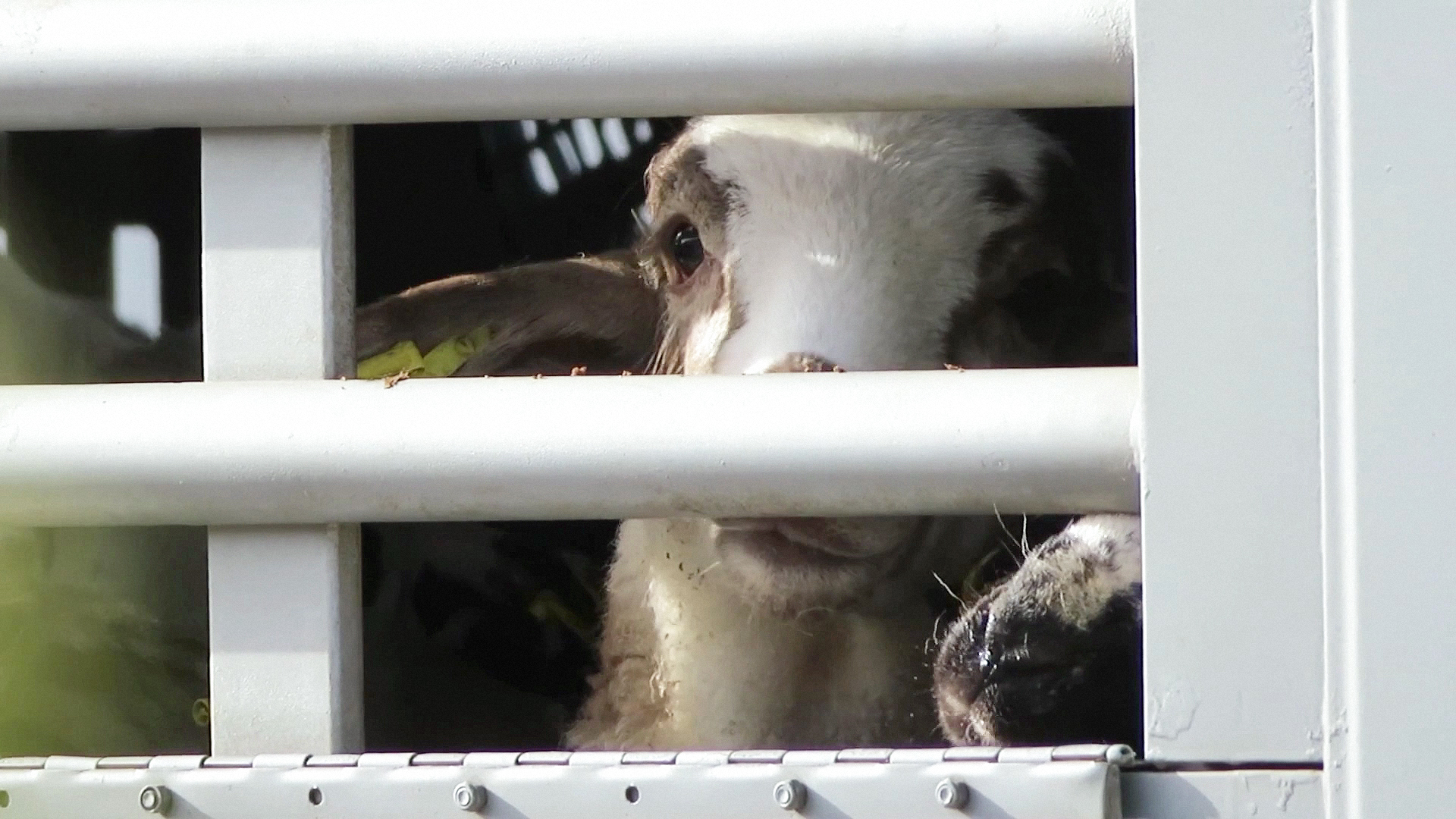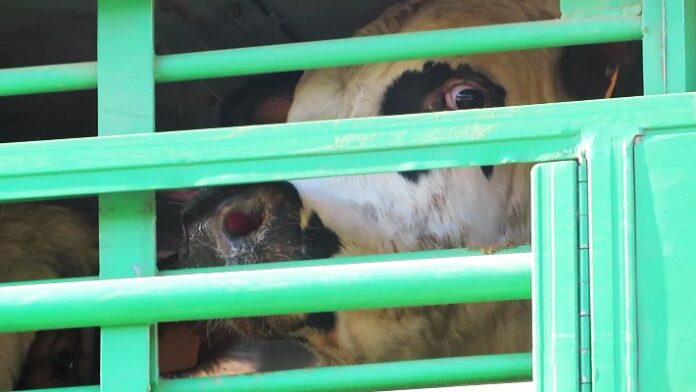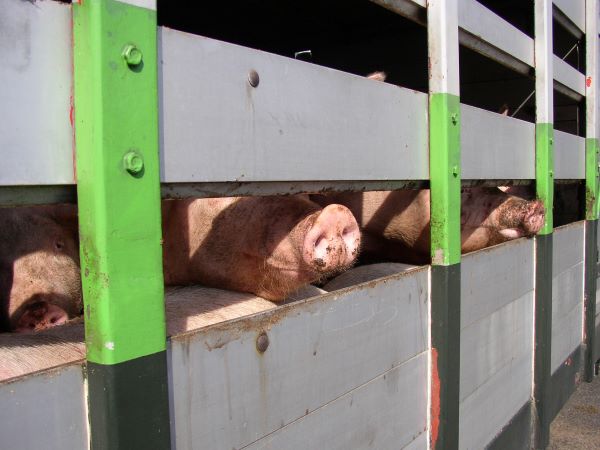Inadequate and misleading official records are masking the true horror and scale of the EU’s long-distance trade in farmed animals, a shocking new report released today (28 November) by international NGOs Compassion in World Farming and Eurogroup for Animals reveals.
The new report – A data dump of suffering: the EU’s long-distance trade in farm animals exposed – analyses a cache of previously unpublished EU records relating to the long-distance transportation of 180,000 consignments of farmed animals within and from the EU during a 19-month period from October 2021 to April this year. It reveals disturbing details of the extent and nature of suffering endured by around 44 million farmed cattle, sheep, pigs and other animals transported annually.
Key insights from the report include:
- Each year, 370,000 unweaned calves are taken from their mothers shortly after birth and deprived of nutrition during long journeys – many as young as just two weeks old. 300,000 unweaned lambs are also imported by Italy alone each year, enduring long journeys without adequate feed.
- Thousands of sheep and cattle are exported from the EU by road to Kazakhstan, Uzbekistan, Kyrgyzstan, Azerbaijan, Armenia and Georgia in journeys lasting up to three weeks.
- France, the Netherlands and Denmark have exported thousands of pigs to extremely distant countries including Brazil, Vietnam, Thailand, and Nigeria. By exporting breeding sows that have been genetically selected for very large litters, the EU is seeding its inhumane factory farming model in other parts of the world.
- Millions of cattle and sheep a year endure long, stressful sea journeys to the Middle East and Africa for slaughter or fattening. Vessels are often in very poor condition and animals suffer greatly during these journeys from heat stress, noxious gases, motion stress and starvation and there are no effective legal protections.
- In 2022, the EU exported around 30,000 pregnant heifers, some to central and western Asia such as Uzbekistan and Kazakhstan where journeys are up to 6,000 km and can take up to three weeks.
- An estimated 54,000 tonnes of live fish, equal to tens of millions of individual animals, were transported between EU Member States in 2019. Fish often endure routine starvation, overcrowding, and physical injury to scales and fins resulting from handling when loading and unloading during transport.

Live export pigs on truck © Compassion in World Farming
The report shows that the EU’s journey records were incomplete, often inaccurate and vastly underestimate the sheer extent of the length and duration of many journeys. Around 60% of journeys are shown as starting at assembly centres but animals may have been transported from the farm of origin for many hours prior to this without any requirement for this to be logged. Many transporters practice ‘assembly centre hopping’, avoiding the requirement for animals to be given 24 hours mid-journey rest before resuming their journey.
This release comes just days before the expected publication of the European Commission’s proposal on animal transport on 6 December. However, the Commission has failed to publish the other proposals it committed to present as part of a more comprehensive revision of animal welfare legislation, including the ban on caged animal farming, which was expected by September 2023.
The two animal protection NGOs are calling on the EU to ban the export of live animals from the EU to non-EU countries and switch to a trade in meat and carcasses only, and to introduce tougher rules to protect the welfare of animals on journeys within the EU.
This call for greater protection for farmed animals’ welfare during transportation is supported by the majority of European citizens. The 2023 Special Eurobarometer found that eight out of ten Europeans think the travel time for the commercial transport of live animals within or from the EU should be limited and an overwhelming nine out of ten people believe it’s important to protect the welfare of farmed animals.

Peter Stevenson, Chief Policy Advisor at Compassion in World Farming said: “Our new report reveals some deeply troubling issues, not least that the official data is incomplete, inaccurate and vastly underestimates the scale of – and the animal suffering caused by – the EU’s long-distance trade in live farmed animals. Although we knew that millions of animals were enduring cruel and unnecessary journeys in the name of profit, this report shows that the situation is far worse than we had feared. The EU must address this as a matter of urgency by banning the live export of farmed animals to non-EU countries and introducing tough new rules to protect their welfare during transportation between and within EU Member States.”
Reineke Hameleers, CEO of Eurogroup for Animals, said: “The transnational nature of live exports makes it especially challenging to protect the welfare of animals, and this is why we ask for a ban of live exports to non-EU countries. A replacement to meat and carcass exports does only benefit the animals but has huge economic and environmental benefits. Better measures to protect unweaned and pregnant animals must be put forward, while the misuse of assembly centres needs to be urgently addressed. The immense scale of suffering highlighted by this investigation cannot be ignored – the European Commission must come forward with more ambitious regulation.”









